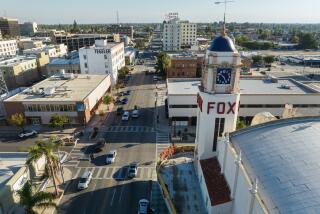Little Sister of the People
When I was a kid growing up in East Oakland my mother used to talk about a nun she called “little sister of the poor” who brought food to the hungry.
I was hungry most of the time and went out looking for her more than once, hoping for a pork chop or a candy bar, but never found her.
The only nuns I knew were the ones who taught catechism classes at St. Louis Bertrand and could stare you down through solid steel if you didn’t know your lessons.
One of them, Sister Rose, told me once I was going to go to hell if I didn’t knuckle down but that had very little effect on me. As far as I was concerned, I was already there.
The point is, I think I’ve finally found the little sister of the poor, but I guess little sister of the people would be more appropriate. Her name is Sister Diane Donoghue and she’s worried about hell too.
Unlike those nuns of long ago, however, she’s not sitting in a classroom staring bullets at kids who won’t cooperate. She’s out in the ‘hoods of South-Central helping to build a community.
At 65, she’s at the age where she could be tucked away in the suburbs, far from gangs and graffiti, growing roses instead of fighting large corporations and battling for low-cost housing.
But that’s not what this nun is all about. “This is my family,” she told me the other day as we drove through a 17-block area that’s the embattled turf of 23 gangs. “I would be committed to it whether or not I was a nun.”
*
Sister Diane is a petite, handsome woman with a smile that can light a city block and the determined manner of a street fighter.
She’s been in the Adams-Hoover district for 23 years, surviving riots and gang wars, and her biggest worry isn’t the gunfire that once pinned her to the floor of her car but the fear that I’d turn her into a kind of “nunny-bunny” hopping around Doing Good.
“I don’t want to trivialize what religious women do,” she told me in no uncertain terms, and for just a brief second her smile took on the kind of edge that reminded me of Sister Rose.
It is no trivialization, however, to say that this fighting nun, a founder of the South Central Organizing Committee, was instrumental in the construction of Villa Esperanza, a gleaming, 33-unit, low-cost apartment complex that has become a monument to community activism.
The altruistic Local Initiatives Support Corp., in solid recognition of her goal of getting families off the streets and into affordable housing, helped put together the $6.9 million that made the dream a reality.
Now other projects are in the offing because Sister Diane believes that no one ought to have to live in the street and that no family ought to have to exist crammed together in a single room.
“If there’s any one thing that characterizes her,” a man in South-Central told me, “it’s that she cares so much.”
*
Minneapolis-born Diane Donoghue, who was brought to L.A. when she was 5, was a Depression kid who saw poverty up close. But she didn’t grow up carrying a cross on her back preaching salvation. Religion wasn’t a big deal in her life. She had boyfriends, dated and someday wanted a family.
Two events helped shape her. One was when she moved into an apartment building shared by Jewish families at about the time the horror of the Holocaust was being revealed.
“I remember their pain and sadness and the great fear for their relatives,” she said. “I could never forget that anguish. It was my first experience with emotional pain.”
Later, as a student at UCLA, she spent three months in India under a Ford Foundation program and was traumatized by the poverty that surrounded her.
“I had never seen people living on the streets before,” she said as we walked through the housing complex her activism helped build. “That changed my life. There was something I wanted to do and something I wanted to be. . . .”
After UCLA, she worked as a volunteer in the inner city, met nuns helping at-risk kids and decided that was the something she wanted to be. She became a nun and ever since has devoted her life to helping those who need it most.
Her vision of hell? “My worst fear,” she said as we parted, “is that we’ll end up like Sarajevo, pitted against each other, unable to see the commonality of our humanity. L.A. is on the edge. We can either be Sarajevo or a model of the future. We all have to pick up the plow.”
Sister Diane, never a nunny-bunny, isn’t out there distributing pork chops and candy bars. Her mission is much grander. By helping to stabilize a neighborhood, she’s distributing a commodity you can’t buy. It’s called hope.
Al Martinez can be reached via the Internet at al.martinez@latimes.nes
More to Read
Start your day right
Sign up for Essential California for news, features and recommendations from the L.A. Times and beyond in your inbox six days a week.
You may occasionally receive promotional content from the Los Angeles Times.






